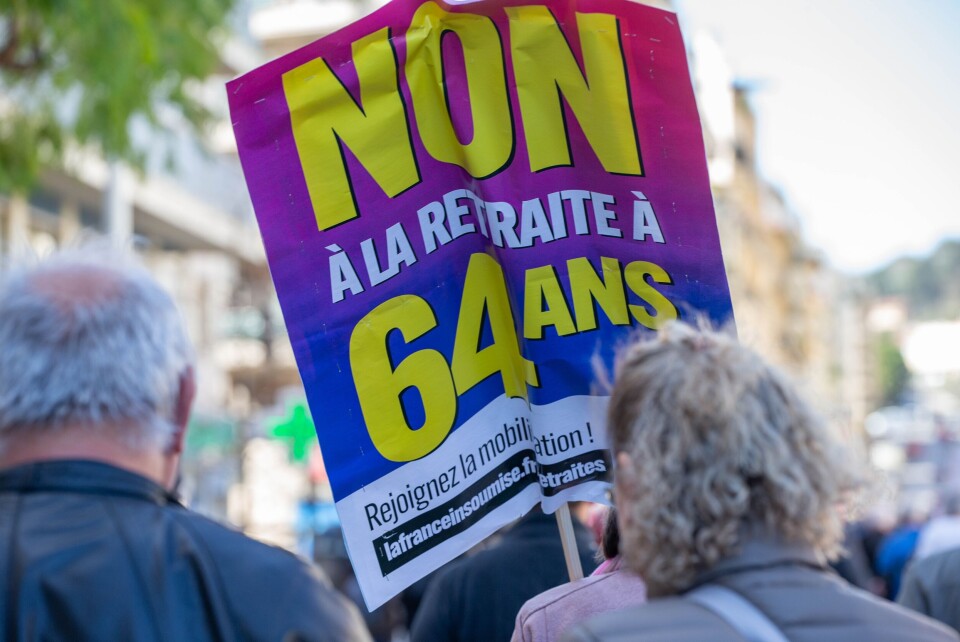-
Foreigners in France 'should be given local votes back'
Political right mobilised to try to halt debate on law extending rights
-
Is it time to stop changing the clocks in Europe?
Campaigners say it would help improve health and also reduce traffic accidents
-
Gisèle Pelicot memoir hits sales top spot in France
The book, which has been translated into 22 languages, left Queen Camilla ‘speechless’
We failed to reverse controversial pension reforms, say French unions
But unions insist they are ‘not turning the page’ on the reforms, despite not announcing any new protest or strike dates

French unions have admitted their efforts to reverse the government’s controversial pension reforms have failed.
Eight major workers’ unions and five youth unions met on Thursday (June 15).
In a statement afterwards, they admitted they had “not been successful in getting the government to U-turn” on the reforms, which include raising the minimum pension age from 62 to 64
The unions also said they had not planned any more demonstrations or strikes against the reforms. The strikes started in mid-January and continued until early June.
At the most recent strike, the secretary-general of the CFDT (Confédération française démocratique du travail) union, Laurent Berger, said “the match was ending” and said he did not hold out much hope for a change to the reforms.
There has not been another strike day since, nor have any future dates been announced.
Read also: France’s pension reform strikes: Are they over now?
The end of the first half only?
Despite the mood music, union bosses insist the fight is not over and that they “were not turning the page” on the issue.
« Nous ne tournons pas la page »
— La CGT (@lacgtcommunique) June 15, 2023
Communiqué de l’intersyndicale - toujours unie - contre la #ReformeDesRetraites 👇 pic.twitter.com/3PZrHdbelk
Thomas Vacheron, secretary at the CGT (Confédération générale du travail), appearing to refer to Mr Berger’s sporting analogy, said: “It’s the end of the first half, but it’s not the end of the match.”
National secretary of the CFDT, Yvan Ricordeau, said the unions would “continue to explain all the negative effects that have come from this reform” while FO (Force ouvrière) secretary Patricia Drevon said “its lawyers were working on” ways to attack the decree.
The CGT said it would “mobilise in the coming months to ensure social progress and face up to socially backward policies on a national level”. Yet, no dates have been announced.
Moving on to other issues
The cross-union group said it was now moving its focus to other issues:
- Wages and pensions
- Working conditions
- Occupational health
- Social democracy
- Gender equality
- The environment
- The conditions of giving public aid to companies
"We believe that we are capable of finding common demands within these themes,”, said Cyril Chabanier, president of the CFTC (Confédération française des travailleurs chrétiens).
The group is also aiming to “bring all its weight” to bear in forthcoming negotiations of:
- The rules on unemployment benefit
- The private sector supplementary pension scheme
The 13 associations are also considering taking part in a European demonstration in Brussels in autumn, on the theme of austerity, Mr Chabanier said.
Several union heads also said they would aim to continue working as a unified bloc.
“When union bosses can no longer shake hands, that’s when company bosses start rubbing theirs together,” said Bernard Thibault, ex-secretary general of the CGT.
Related articles
Reignite or fizzle out? What next for France’s pension reform strikes?
























